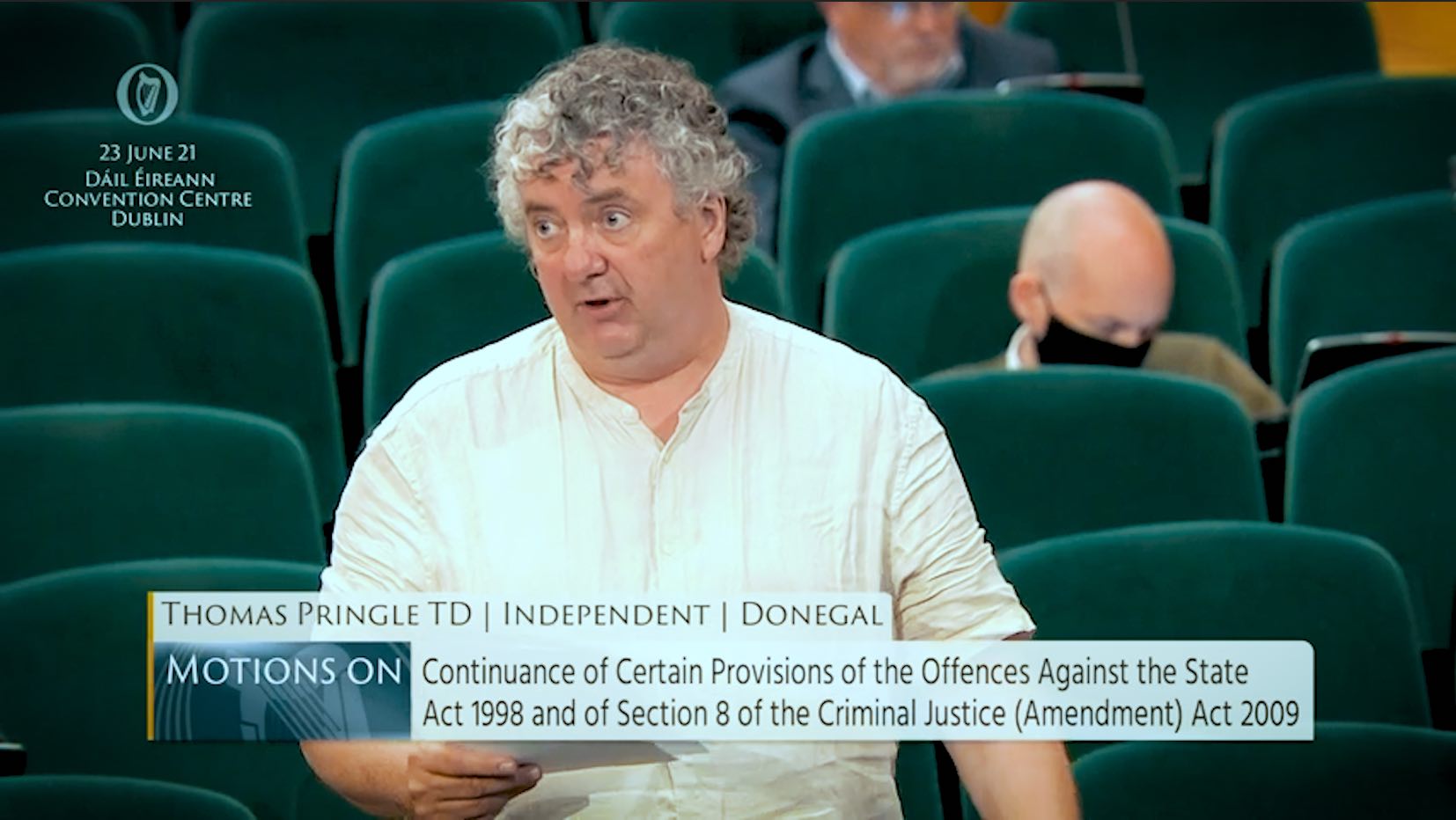- Pringle: We need a policy that recognises the importance of inshore fishing
- Pringle: Disabled people and carers face crisis of State neglect
- Pringle: Failed FF/FG housing policies forcing people to put their lives on hold
- Pringle welcomes Donegal council motion on Occupied Territories Bill: ‘We cannot stand by in the face of genocide’
Pringle: Government should not have ‘carte blanche’ on continuance of criminal justice provisions
- Updated: 24th June 2021

Independent TD for Donegal, Thomas Pringle, said Government cannot be given a ‘carte blanche’ on the continuance of provisions of the Offences Against the State Act and provisions of the Criminal Justice Act.
Deputy Pringle said: “I am opposed to the blanket endorsement of these pieces of legislation and believe that it contributes to the undermining of all of our rights.”
Addressing the Dáil today, Deputy Pringle said: “I am standing here again this year to oppose the rubber-stamping of the Offences Against the State Act and the Criminal Justice Act in our criminal code. This has become a moot point every year, but I think it should still be opposed because we cannot simply give a ‘carte blanche’ to the Government on this.
“The right to silence and the inference included in that right being available to all citizens is and should continue to be a cornerstone of our justice system,” he said.
Deputy Pringle said: “It is true that this motion being put forward has assumed de facto permanency and the continuation of these offences is just a routine part of the criminal justice architecture in our State.
“It has been roundly condemned by human rights groups all over the world. Rightly so, because the undermining of civil liberties affects all our citizens, whether they will ever be before the courts or not. It is wrong to give the government the impression that it can carry out these things whenever they deem fit,” he said.
Deputy Pringle said, “At the very least we need a report that gives a breakdown of why we need this law, what it contributes to our system and what are the possible alternative measures that could be carried out to preserve the integrity of the criminal justice system in a way that protects our citizens and preserves human rights.”



